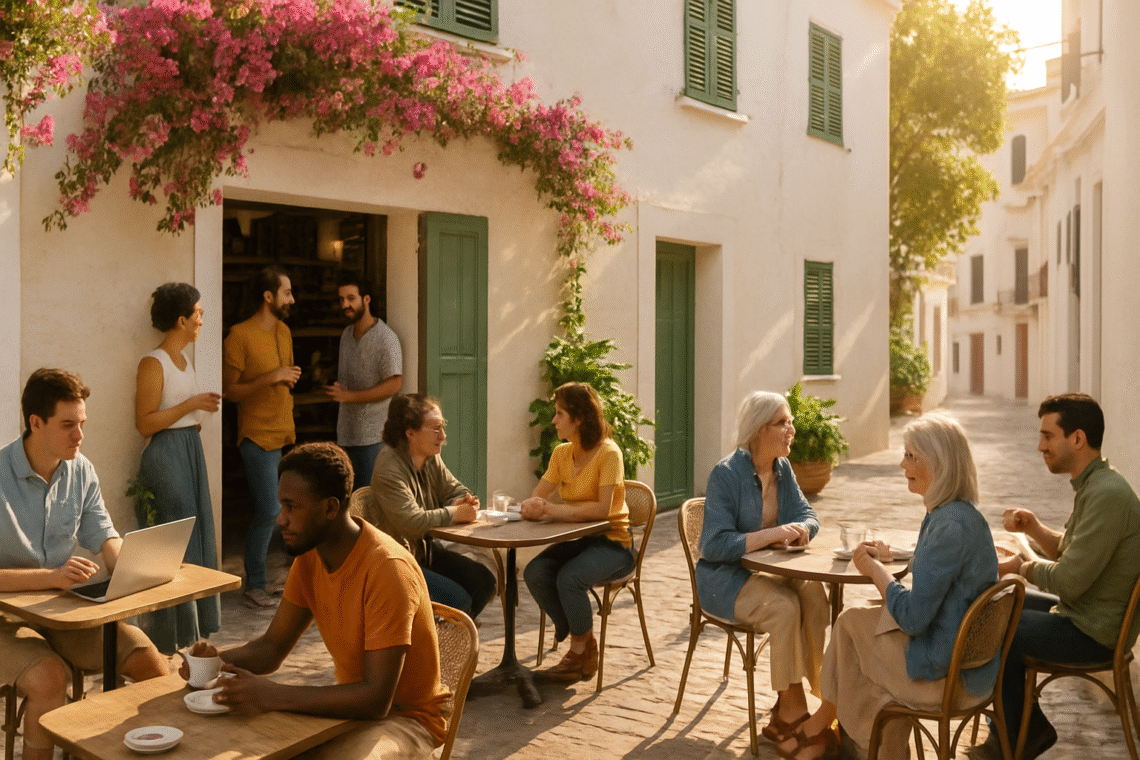On Rituals That Set Us Free
There is a particular kind of freedom that comes only with repetition.
It’s not the sort that gets written into declarations or shouted across barricades. It won’t win awards, and it probably wouldn’t trend online unless a celebrity were spotted doing it in a rather unexpected outfit. But it is real, and quietly radical. It is the freedom that grows, slowly and faithfully, within the humble confines of ritual.
I’ve come to appreciate this more and more with age. Perhaps it is because, like many men of a certain era and disposition, I take deep solace in the predictable. I rise at the same hour. Grind the same coffee beans. Pour the water in slow circles. Sip. Sit. Read a poem or a passage of something wholly unreadable but satisfyingly dense. And in that quiet pattern, I remember myself.
It would be tempting to call this habit. But that would be to miss the point. Habit is unconscious. Liturgy, if I may borrow a sacred word for a thoroughly secular cup of coffee, is what happens when habit becomes meaningful. When the thing repeated begins to shape the person doing the repeating.
In that sense, we all have liturgies. Some are obvious,Sunday services, candle-lightings, grace before meals. Others are more subtle: the way one prepares for a difficult phone call, or listens to the radio at precisely the same time each evening. Even the decision to keep a battered armchair in the corner, next to the bookshelf and the dog, can be a liturgy of sorts. A silent, spatial remembering of who we are and how we wish to live.
And here lies the paradox: far from constraining us, these rituals are what set us free. Not in the gaudy sense of throwing off shackles, but in the gentler, truer sense of anchoring our lives to something stable, and therefore expansive.
The modern world, God bless it, is not much interested in such things. We are encouraged to keep our options open, to reinvent ourselves daily, and to treat every moment as an audition for something better. There is a low-grade tyranny in that kind of freedom. A pressure to be endlessly original, permanently responsive, and exhaustingly flexible.
But freedom, I think, is not the same as endless novelty. It is the capacity to choose what matters and to return to it, again and again, until it becomes part of us. The pianist plays scales. The monk chants psalms. The gardener sows at the right time each year. And through the rhythm, the person is formed.
This is not to say liturgy is always comfortable. I have been to many a service (both sacred and civic) where the words were mumbled and the coffee tepid. But even there, something is happening beneath the surface. In the repetition, memory is preserved. In the form, meaning is carried. And when the world becomes unmoored,as it so often does,it is these small acts that keep us tethered.
Indeed, I would wager that the health of a society might be measured, in part, by the strength of its shared rituals. The civic holidays we half-mock but still keep. The stories we tell at certain times of year. The ways we gather, grieve, mark time. A people with no rituals is like a tree with shallow roots,easily toppled by the next fashionable wind.
Of course, not all rituals are worth keeping. Some must be revised, others gently laid to rest. But the answer to dead tradition is not no tradition; it is living tradition. The sort that breathes and adapts, yet still holds shape. That, too, is a kind of freedom: the liberty of continuity.
So I keep my little rituals. I light a candle when I write. I go for a walk after dinner, rain or shine. I still write thank-you notes in ink. These things do not make me less free. They make me more so. Because they remind me who I am, even when the world is noisy and the self is uncertain.
There is great strength in such liberty. A strength born not of noise or speed, but of rhythm. Of choosing, each day, to enter again into the same good path, until the path becomes your own.
What rituals in your life offer you a quiet kind of freedom? Which habits might become liturgies,deliberate, grounding, and soul-forming? Where might the strength of your freedom lie not in choosing anew, but in choosing again?





